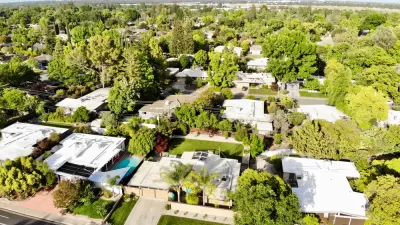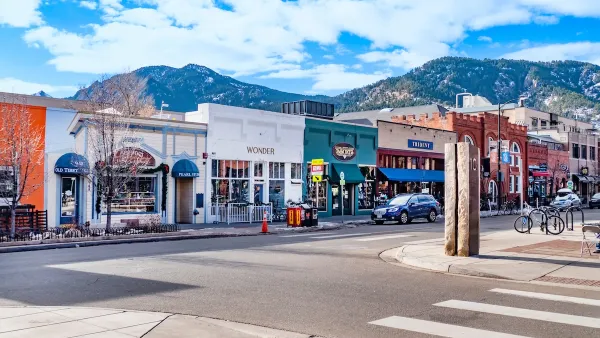In what is being described as a "monumental shift" in the city's approach to parking, Sacramento's City Council has voted to ease minimum parking requirements for commercial and residential developments reports Tony Bizjak.
With an eye towards stimulating infill commercial development and high-density housing development catering to an emerging segment of residents less interested in owning cars, Sacramento's City Council approved a "sweeping set" of new parking rules this month. "This is a monumental shift in how we approach parking requirements on development projects," said Sacramento City Manager John Shirey. "We need to eliminate the unnecessary roadblocks that sometimes stifle projects."
The changes are being applauded by "builders, lower-income housing advocates, as well as pedestrian and transit advocates."
However, says Bizjak, "[t]he parking changes come with a risk, especially in parts of downtown and midtown where street parking is often hard to find. It means there will be more people, but not many more parking spots."
"City officials say they think they can manage that risk. The new rules allow businesses to build more parking than required, if they choose to, planners note. And in some commercial and downtown areas, parking officials say they hope to sign agreements with private parking lot owners to allow drivers to park in underused lots during both day and night."
"The city also plans to increase street parking on some blocks by restriping parallel spots to turn them into diagonal spots, fitting more per block," and will expand its residential permit parking program.
According to Bizjak, "[t]he new zoning also will require all new development to provide bicycle parking."
FULL STORY: Sacramento eases parking requirements for new projects

Planetizen Federal Action Tracker
A weekly monitor of how Trump’s orders and actions are impacting planners and planning in America.

Chicago’s Ghost Rails
Just beneath the surface of the modern city lie the remnants of its expansive early 20th-century streetcar system.

San Antonio and Austin are Fusing Into one Massive Megaregion
The region spanning the two central Texas cities is growing fast, posing challenges for local infrastructure and water supplies.

Since Zion's Shuttles Went Electric “The Smog is Gone”
Visitors to Zion National Park can enjoy the canyon via the nation’s first fully electric park shuttle system.

Trump Distributing DOT Safety Funds at 1/10 Rate of Biden
Funds for Safe Streets and other transportation safety and equity programs are being held up by administrative reviews and conflicts with the Trump administration’s priorities.

German Cities Subsidize Taxis for Women Amid Wave of Violence
Free or low-cost taxi rides can help women navigate cities more safely, but critics say the programs don't address the root causes of violence against women.
Urban Design for Planners 1: Software Tools
This six-course series explores essential urban design concepts using open source software and equips planners with the tools they need to participate fully in the urban design process.
Planning for Universal Design
Learn the tools for implementing Universal Design in planning regulations.
planning NEXT
Appalachian Highlands Housing Partners
Mpact (founded as Rail~Volution)
City of Camden Redevelopment Agency
City of Astoria
City of Portland
City of Laramie





























